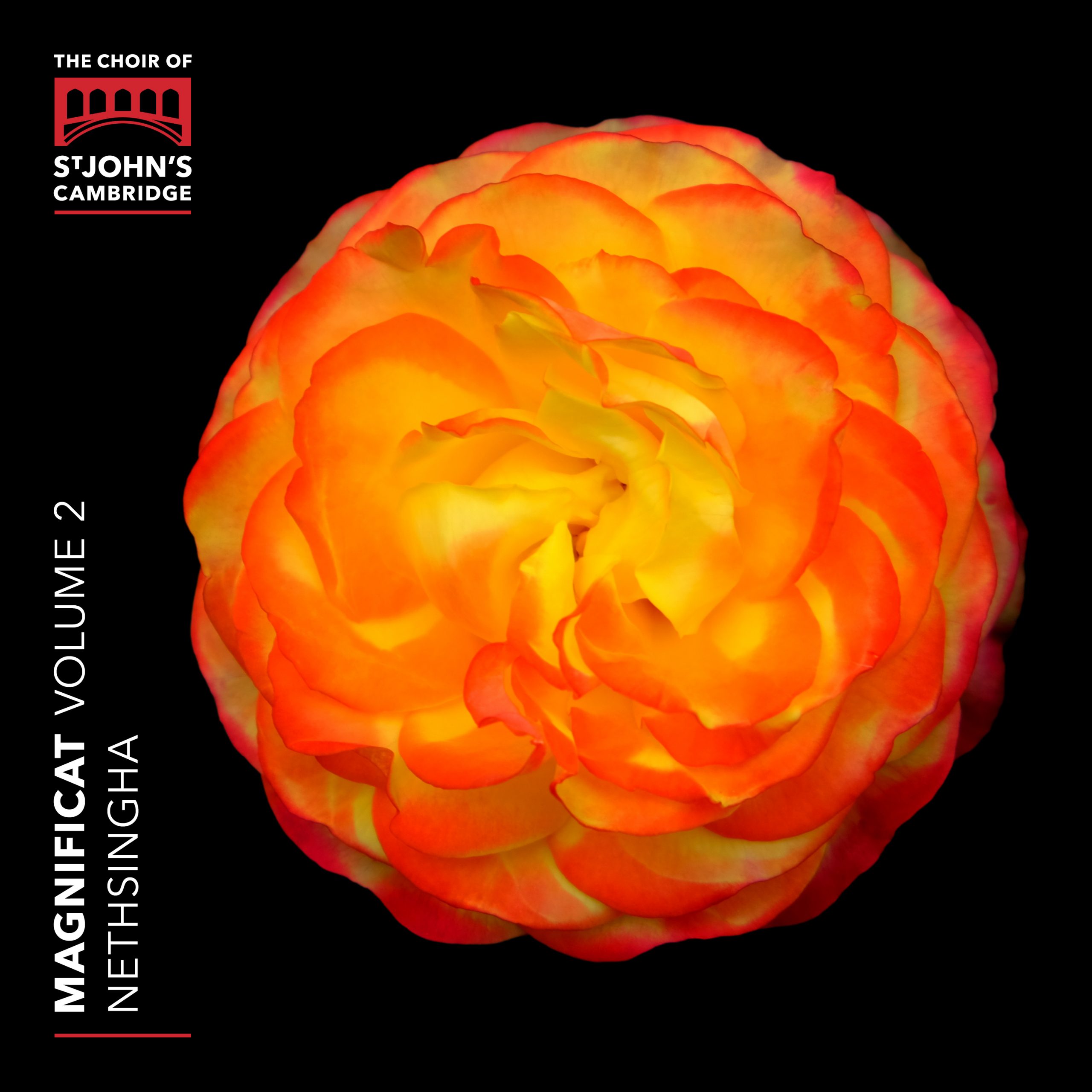Magnificat Vol 2 (Nethsingha)
View record and artist detailsRecord and Artist Details
Genre:
Vocal
Label: Signum Classics
Magazine Review Date: 06/2021
Media Format: CD or Download
Media Runtime: 74
Mastering:
DDD
Catalogue Number: SIGCD667

Tracks:
| Composition | Artist Credit |
|---|---|
| Magnificat and Nunc Dimittis |
Herbert Howells, Composer
Andrew Nethsingha, Conductor Glen Dempsey, Organ St John's College Choir, Cambridge |
| Magnificat |
Giles (Oliver Cairnes) Swayne, Composer
Andrew Nethsingha, Conductor Glen Dempsey, Organ St John's College Choir, Cambridge |
| Magnificat and Nunc dimittis |
Sydney Watson, Composer
Andrew Nethsingha, Conductor Glen Dempsey, Organ St John's College Choir, Cambridge |
| Evening Service |
Francis (Alan) Jackson, Composer
Andrew Nethsingha, Conductor Glen Dempsey, Organ St John's College Choir, Cambridge |
| Evening Canticles |
Julian Anderson, Composer
Andrew Nethsingha, Conductor Glen Dempsey, Organ St John's College Choir, Cambridge |
Author: Andrew Mellor
There is a treasure trove here, of information and reflection as well as music. Rowan Williams, Julian Anderson and Andrew Nethsingha all contribute to the 38-page booklet, the latter’s acute and very human analyses including reprints of original manuscripts of the works performed, some revealing the composers’ first thoughts. The former Archbishop of Canterbury urges us to remember that both of the Church of England’s canticles for Evensong set texts delivered by disruptive outsiders and directly contradict the ‘quintessentially middle-class cultural nostalgia’ that Choral Evensong can all too easily embody.
For all the spiritual nourishment it engenders, anyone who has grown up with Evensong in their blood has to acknowledge that Williams is right to sound that caution. In a sense, this whole university-born project (ditto its first volume – A/19) has been about setting the ‘Mag and Nunc’ in a wider and less ossified context. It is fascinating the extent to which Nethsingha can see this music with fresh contextual eyes, which accounts as much for his inclusion of 50 per cent works by non-church musicians as for his descriptive and interpretative pointing to a setting like Watson in E – which I had always lazily dismissed as dull and insignificant – as ‘exquisitely crafted, perfectly scaled … full of melodic charm and harmonic sophistication’.
Many of Nethsingha’s observations concern text. So, as always, do the performances he presides over. This choir’s singular qualities – responsiveness, sophistication of line and texture and a chameleonic stylistic acumen that never loses sight of its own core, identifying sound – are all in play here. The choir’s ability to deliver a ferocious and/or primary-coloured sound while still clarifying harmony and avoiding bombast is as valuable in the apex of the Howells Collegium Regale – which really sends a shiver down your spine especially with the organ blowing tight and reedy – as it is in the Giles Swayne and Julian Anderson Magnificats that need total presence and accuracy across all their rhythmic bracken.
The latter piece is the least well-known here and can feel a little mannered, less interesting than its accompanying Nunc while making far more noise, some of it uncharacteristically derivative. I find it hard to warm to Lennox Berkeley’s ponderous setting, one piece that could use a more washy acoustic and which Nethsingha can’t quite, to my ears, ‘convert’ to the sound of the St John’s Chapel in the same way he does, for example, the Howells.
The high points are those in which the music’s lucidity of structure allows the choir to really suggest an idea of the piece’s sound, none more so than in Sumsion in G and the Pärt Magnificat. The performance of the latter is remarkable, increasing in serenity even as the music does the opposite, varying expression within tight contours and so inhabiting the feeling of a Baltic incantation. Walton’s Chichester Service comes off with rare clarity, its athleticism worn lightly. Jackson in G sounds a little curt; everything present but perhaps that bit too brightly lit.
Nitpicking? Probably. In scope, quality of delivery and specification of packaging (do yourself a favour and buy a hard copy) this project is shaping up to become the most significant recording project ever in the field of choir-and-organ English church music. But they want you to think in broader terms than that.
Discover the world's largest classical music catalogue with Presto Music.

Gramophone Digital Club
- Digital Edition
- Digital Archive
- Reviews Database
- Full website access
From £8.75 / month
Subscribe
Gramophone Full Club
- Print Edition
- Digital Edition
- Digital Archive
- Reviews Database
- Full website access
From £11.00 / month
Subscribe
If you are a library, university or other organisation that would be interested in an institutional subscription to Gramophone please click here for further information.




